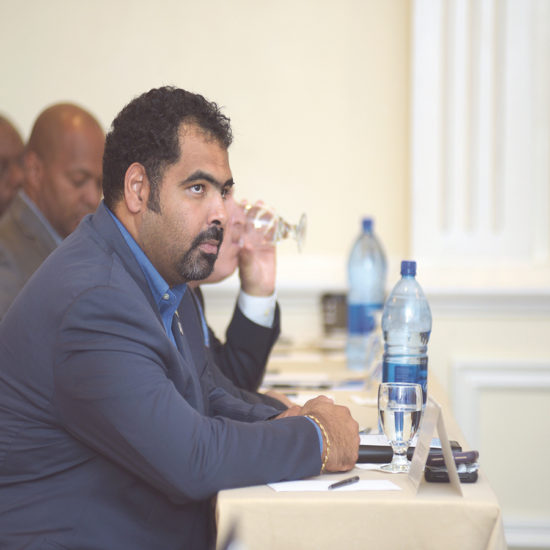By Paige McCartney
NASSAU, Bahamas — Chief financial officer of Fidelity Bank and Trust, Gowon Bowe, speaking with the Guardian Business said, the government should look at rebuilding the impacted islands as a long-term project rather than immediately finding “whatever millions are necessary for reconstruction”.
“They have to set out what they are going to invest and think of it in that manner, in the recovery effort. This is going to be deploying resources as and when needed that will get the quickest return. Meaning, I need to be deploying my resources into activities that allow economic activity to commence, not be fully restored. I need to ensure that the money I plow into the ground is going to have a trickle-down effect, and that’s very important that the money is going to be paid to the people in the communities that they can then spend that money in the communities to also bolster the recovery efforts,” he said.
Without that kind of focus, the chartered accountant said, anxiety sets in.
“We have to break it down into the constituent parts, which hasn’t been done very clearly, and I think that’s what causes some of the anxiety. When we talk about Abaco and Grand Bahama, there are the collections that come into government, but more important is understanding what are the GDPs of these islands, what are the economic activities in these respective islands,” he said.
“We have to remember that the government only collects a percentage of the GDP, meaning that as it currently stands statistics show that tax revenue is about 20 percent of overall GDP. If we assume that it holds at the same consistent level at the two islands and there’s an estimate of there being somewhere in the order of $280 million in lost revenues, then the reality is these economies between the two of them are potentially $1.4 billion in the size of their economy.
“So, if I have $1.4 [billion] that seems like a daunting number but that’s not all at the doorstep of the government. Because you have first the insurance proceeds, so for the businesses, residences and general economic activities that are insured that’s going to cover a significant portion of that. Second, there’s private investment, so if I choose to self-insure, I may have had a business, but I didn’t have insurance. I have the financial resources to rebuild and bring my operations back or even home, that’s going to take another chunk of it. The third chunk of it is going to be [as I start] the economic activity, there is some part that is going to come in from the government to help defray what they have to accomplish.”
Bowe also said concerns about how the divergence of government expenditure will impact unaffected communities are valid.
“If we are candid in our response, yes, there’s always going to be some risk of concern in unaffected islands, particularly in the capital, New Providence, based on how the central government’s spending patterns will be diverted into impacted islands. And the best way of discussing that is, when we look at what is being contributed into the whole government (finances) from the impacted islands Grand Bahama and Abaco, I think the deputy prime minister estimated that to be between $250 and $280 million in terms of coming into the central government which is under ten percent of the total collections as it relates to the central government,” Bowe said in an interview with Guardian Business.
“However, when we talk about the amount to restore these islands the numbers we are hearing are multiples of that, we are hearing hundreds of millions. So, of course, there will be, when the giving mood has subsided – meaning right now we are our brothers’ keepers, we’re making donations – when it comes down to saying, ‘Am I going to have to sacrifice social services or resources in other islands in order to accommodate expenditure in these impacted islands?’, that’s when persons will start to say, ‘Well, how does this impact my day-to-day living?’”
Republished with permission of the Nassau Guardian





